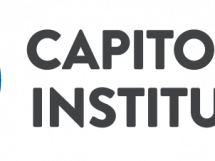
LEXINGTON, Ky. (Aug. 28, 2012) — Lexmark International, Inc. today announced its restructuring plans, which include phasing out the development and manufacturing of the company’s remaining inkjet hardware. About 1,700 jobs worldwide, or almost 13 percent of Lexmark’s workforce, will be cut, including about 1,100 manufacturing jobs.
Local media agencies are reporting that 500 Lexington jobs are on the chopping block.
The action is expected to result in annualized savings of $95 million once fully implemented.
The company will, however, continue to provide service, support and aftermarket supplies for its inkjet installed base.
“Today’s announcement represents difficult decisions, which are necessary to drive improved profitability and significant savings,” said Paul Rooke, Lexmark chairman and chief executive officer. “Our investments are focused on higher value imaging and software solutions, and we believe the synergies between imaging and the emerging software elements of our business will continue to drive growth across the organization.”
Lexington Mayor Jim Gray said Lexmark’s action plan is a “tough reminder in tough times: in today’s competitive economy, no market is forever. Even the strong struggle, and there’s not a thing I can say that will make this announcement hurt any less.”
“We’re glad to be Lexmark’s home and hope their business improves as the global economy improves,” he added. “Our hearts go out to the people who lost their jobs and their families. The best way to help them is to be a city where every action encourages good jobs and a strong economy. You’ve got my promise: we’ll continue to do that.”
The restructuring is the second in less than a year for Lexmark, which said in January it would cut 625 jobs.
Increasing profitabilty
The restructuring is expected to result in reductions primarily in inkjet-related infrastructure, as well as positions in research and development, supply chain and other support functions.
The actions include closing the Cebu, Philippines, inkjet supplies manufacturing facility by the end of 2015. The actions also include eliminating inkjet development worldwide, including costs related to facilities, tooling, equipment, contract termination and scrapping in process inventory, which are expected to be principally complete by the end of 2013.
The company is working with its strategic advisors to explore the sale of the company’s inkjet-related technology.
These actions are expected to generate $85 million savings in 2013, increasing to ongoing annualized savings of $95 million beginning in 2015. Savings should be split approximately 65 percent to operating expense, and 35 percent to cost of goods sold. The company expects the majority of these savings to favorably impact pre-tax earnings.
The total program pre-tax cost for these actions is expected to be $160 million, with $110 million incurred in 2012, $30 million incurred in 2013, and the remaining $20 million incurred in 2014 and 2015. The total program cash flow impact for these actions is expected to be $75 million, with $40 million impacting 2012, $30 million impacting 2013, and the remaining $5 million impacting 2014 and 2015.
Company buying back shares
Lexmark is continuing to execute its previously announced capital allocation framework of returning more than 50 percent of free cash flow to shareholders, on average, through dividends and share repurchases, while building and growing its solutions and software business through expansion and acquisitions.
Lexmark plans an additional $100 million of share repurchases in the third and fourth quarter of 2012. With this action completed, Lexmark will have returned, through paid and declared dividends and share repurchases, more than $500 million to shareholders since mid-2011.
Lexmark’s Board of Directors approved an additional $200 million of share repurchase authority. Total share repurchase authority remaining after the additional $100 million repurchases will be $251 million.




















Add Comment